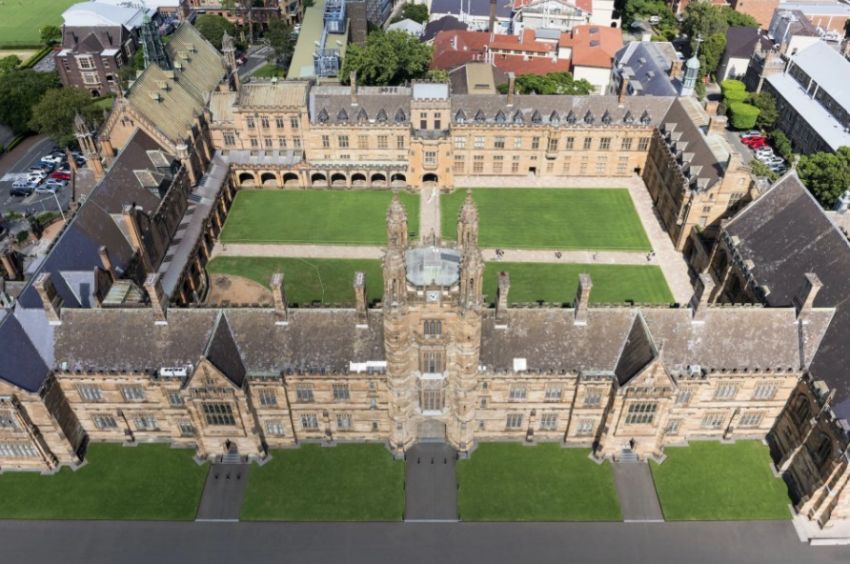
Politicians have long been made aware of a deep rot in higher education, but seem shocked when evidence shows how universities in Australia are governed. A new report shows the system is corrupt, riven by rapacious bureaucratic arrangements and governed by a smug white-collar class.
The Senate Education and Employment Legislation Committee’s interim report points the finger at an administrative stratum that blights university education.
Report chair Labor senator Marielle Smith seemed surprised at the committee’s own findings. “Universities are public institutions, established for the public good. Their governance arrangements, and the remuneration of their senior executives, should reflect that — yet we’ve heard that more than 300 university executives earn more than their state premiers.”
The report’s theme follows the same beat of surprise. The committee seemed to be transfixed by the idea of a “gap” or “gaps” between subsidised managers on the one hand and the exploited students and workhorse staff on the other. (The words appear no fewer than 23 times in the report.)
“The gap between universities’ perceptions of their governance processes and the experiences described by university staff and students was striking.” There are several problems. The first is that administrators have convinced MPs and the broader public that they are somehow part of an ancient lineage of teaching and learning, and that university staff and students are, by definition, not the university.
There is also “a gap between policy and practice” with regards to “matters of transparency and the management of conflicts of interest across multiple universities”.
Those submitting reports to the inquiry were particularly concerned “about the transparency of council decision-making and university finances (including the use of consultants), as well as the handling of freedom of information (FOI) requests by universities”.
The submission by the University Chancellors Council (UCC), for its part, was coy. The committee noted “one allusion to problems in the sector”. The words of the UCC are not worth recounting, except to identify culpability.
And the culpable always claim to be credible when found out. “Robust systems of governance, while an antidote to failure in process, are not infallible and UCC is committed to continuous improvement in governance systems.” No sycophantic hack could have said it better.
The problems of Australia’s tertiary system are profound. The committee heard evidence from staff and students showing their near inconsequential role in making decisions before the autocratic whims of university councils. The corollary of such inconsequentiality lay in those 306 university executives with exorbitant salaries who have proliferated like fungi in moist climes.
The committee noted a submission by Dr Lionel Page, who said the number of senior management positions at universities between 1997 and 2017 “increased by over 110%, while middle management roles grew by 122%”. The pool of support staff, however, dried up by 70% over the same period.
University vice-chancellors take more wages than cabinet ministers, the prime minister and state premiers. Ditto the clutch of acquisitive deputy executives, who have little to do with classrooms, teaching and research.
To put it into context: government leaders send people to their deaths, declare wars and emergencies and can be voted out on relatively lower levels of remuneration. The supposed magistrates of education can, on a fatter package, enact dreadful policies with impunity and never fear a collective vote of the university body that might terminate their tenure.
Things would not be quite so bad were some administrators capable. We know this not to be the case. These tertiary education plodders are a formidable example of the Peter Principle in grim action, one expounded in the book by that name in 1969: Those in any organisational hierarchy rise to levels of “respective incompetence”.
What we see in universities is an oligarchy of oafs.
How does the report address this problem? Its 12 recommendations include improvements to transparency and accountability (for instance, publishing the minutes of all council meetings and publicly disclosing the expenses for consultants, along with reasons for hiring them); greater involvement of staff and students in “meaningful consultation” before important decisions are made; ensuring that governing bodies have a minimum proportion of elected representatives and those with “public administration and higher education expertise”; and giving the otherwise benign Tertiary Education Quality and Standards Agency (TEQSA) new powers to investigate breaches of the Higher Education Standards Framework and enforce compliance.
The committee’s fourth recommendation urges the federal government to work with the Remuneration Tribunal, and states and territories, to create a mechanism that will assess the appropriate salaries for vice-chancellors and senior executives.
Unfortunately, the report approves of university councils setting the pay scales within the devised classification. History shows that university councils, unless they are utterly reformed, cannot be trusted with such a task.
Alison Barnes of the National Tertiary Education Union merely states the obvious in approving the recommendations of the interim report. “We strongly welcome the committee’s recommendations to boost transparency, cap vice-chancellor salaries, reform university councils, and strengthen the regulatory TEQSA.”
The report risks suffering the lonely fate of others. Vice-chancellors and senior executives will drag their feet and ensure that change will be glacially slow, preferably non-existent.
In the absence of regulations with true bite and an anti-corruption body with specific expertise on the nature of the modern university, ideas for reform will suffer withering neglect.
[Binoy Kampmark lectures at RMIT University.]